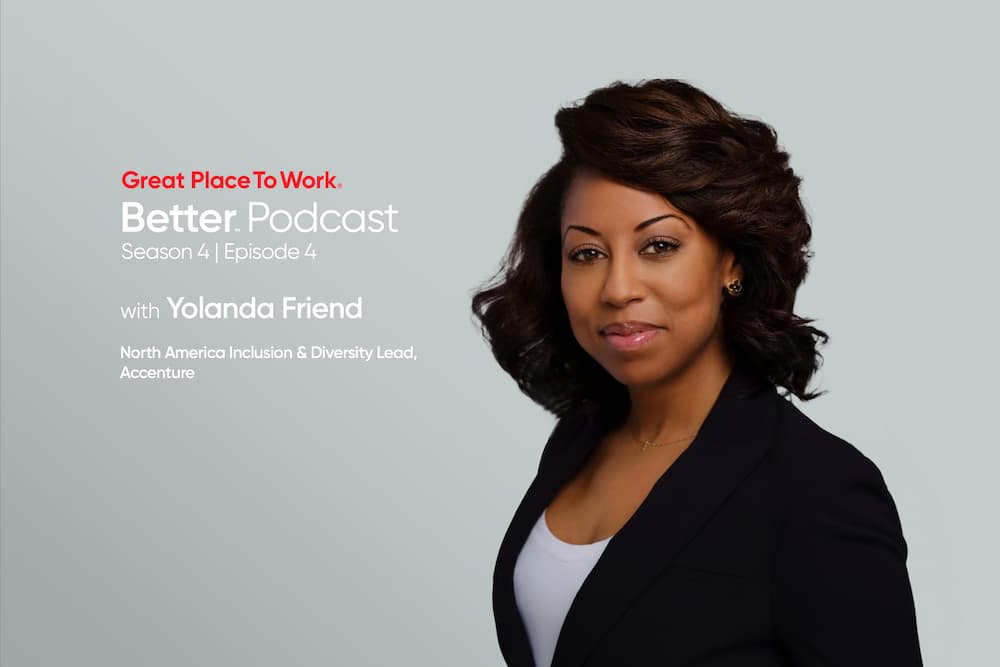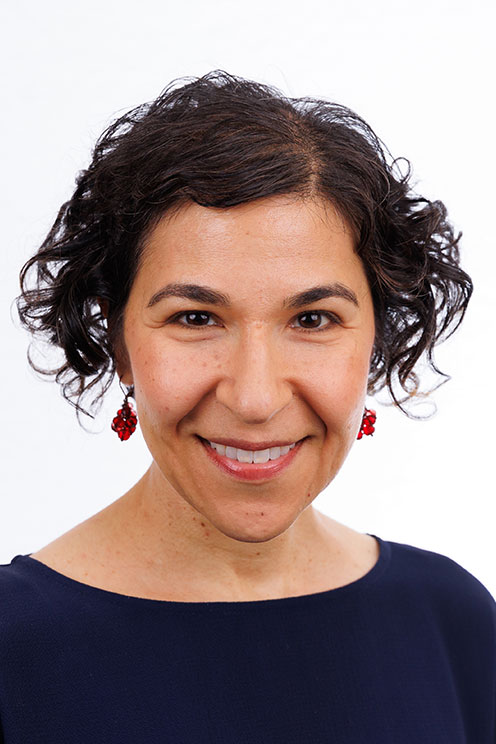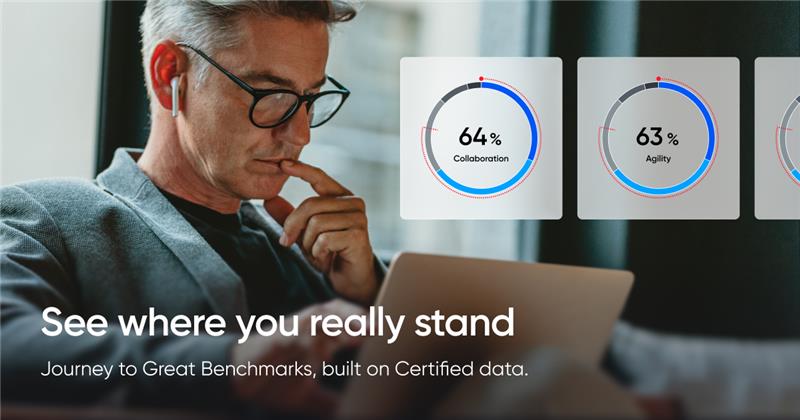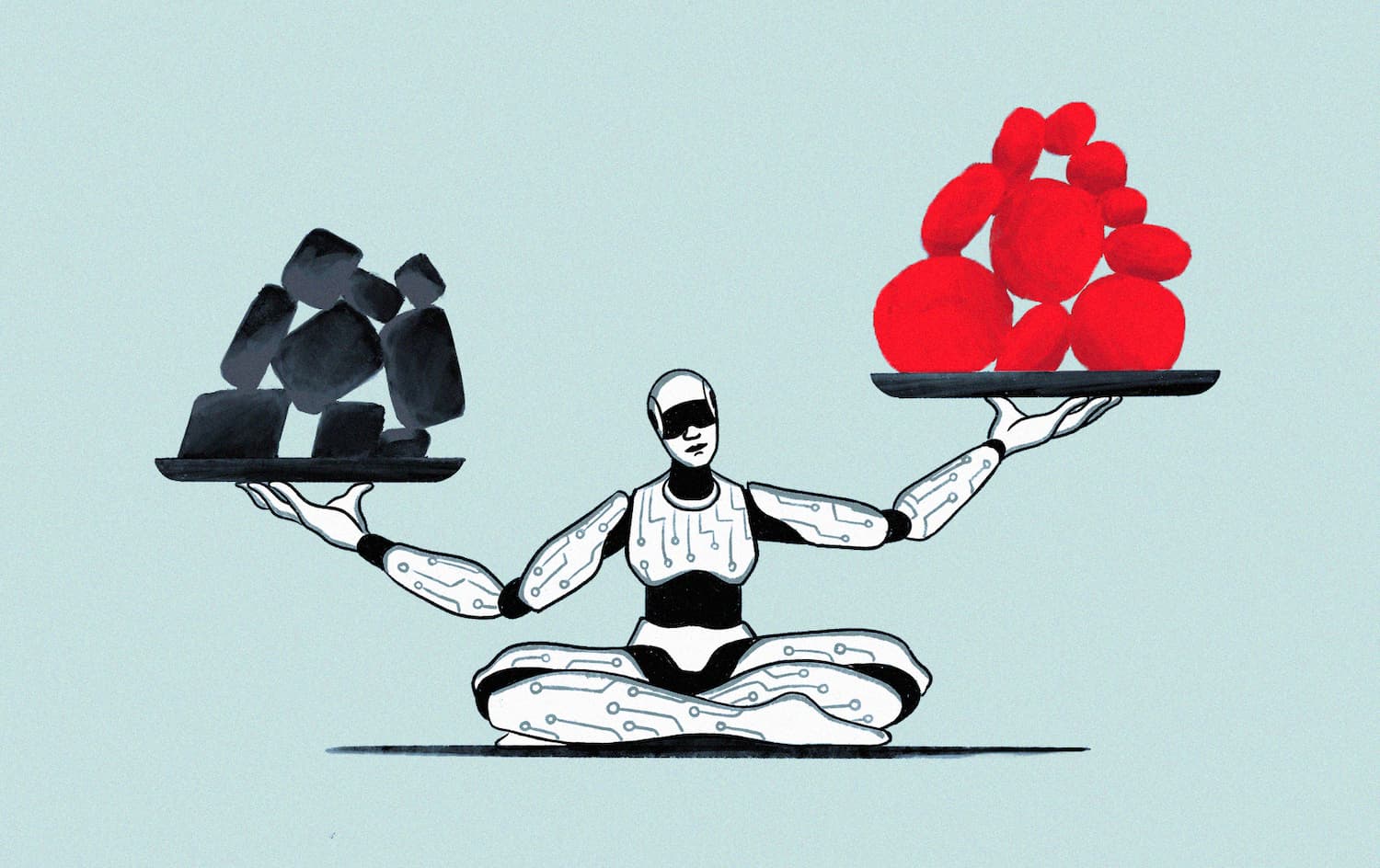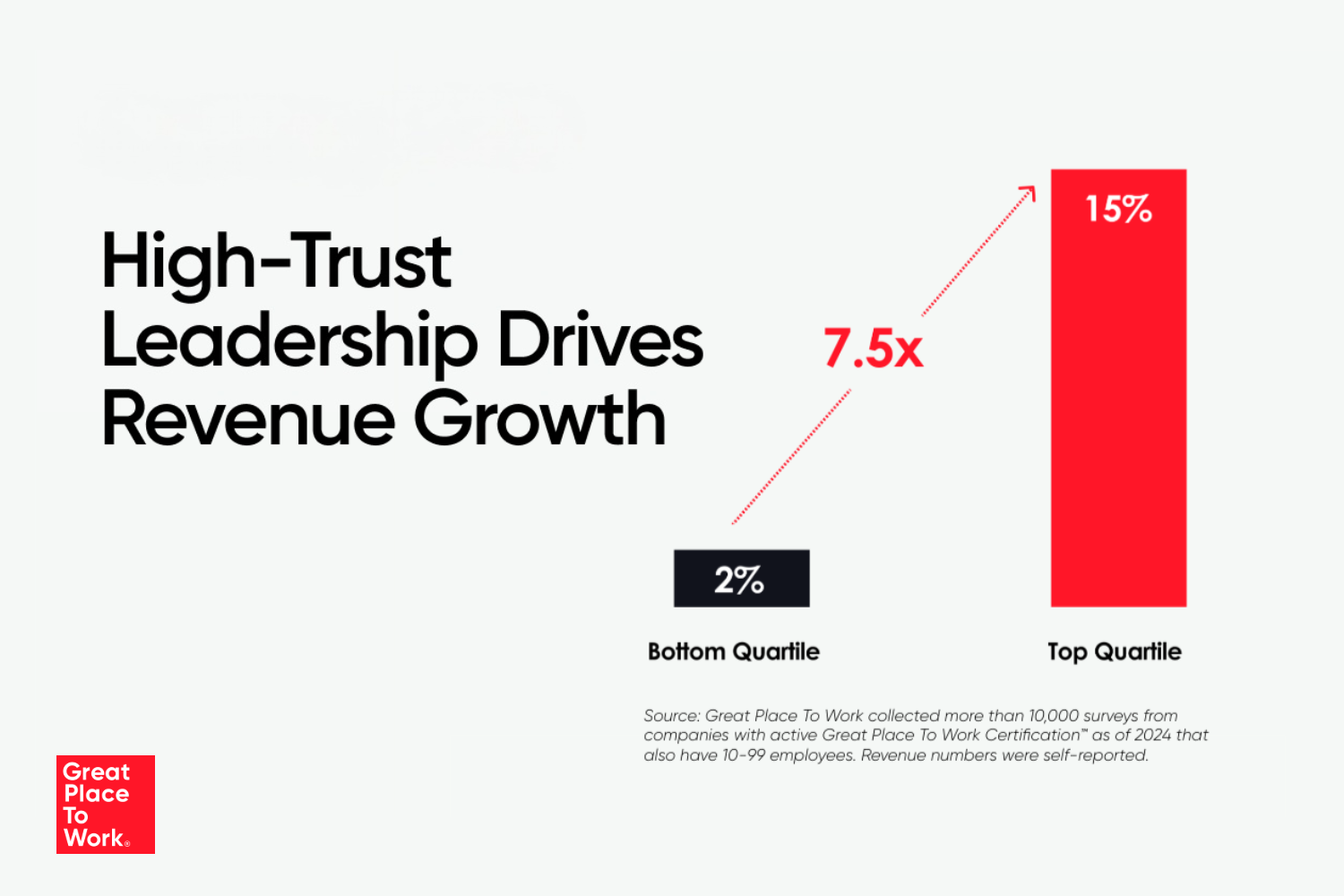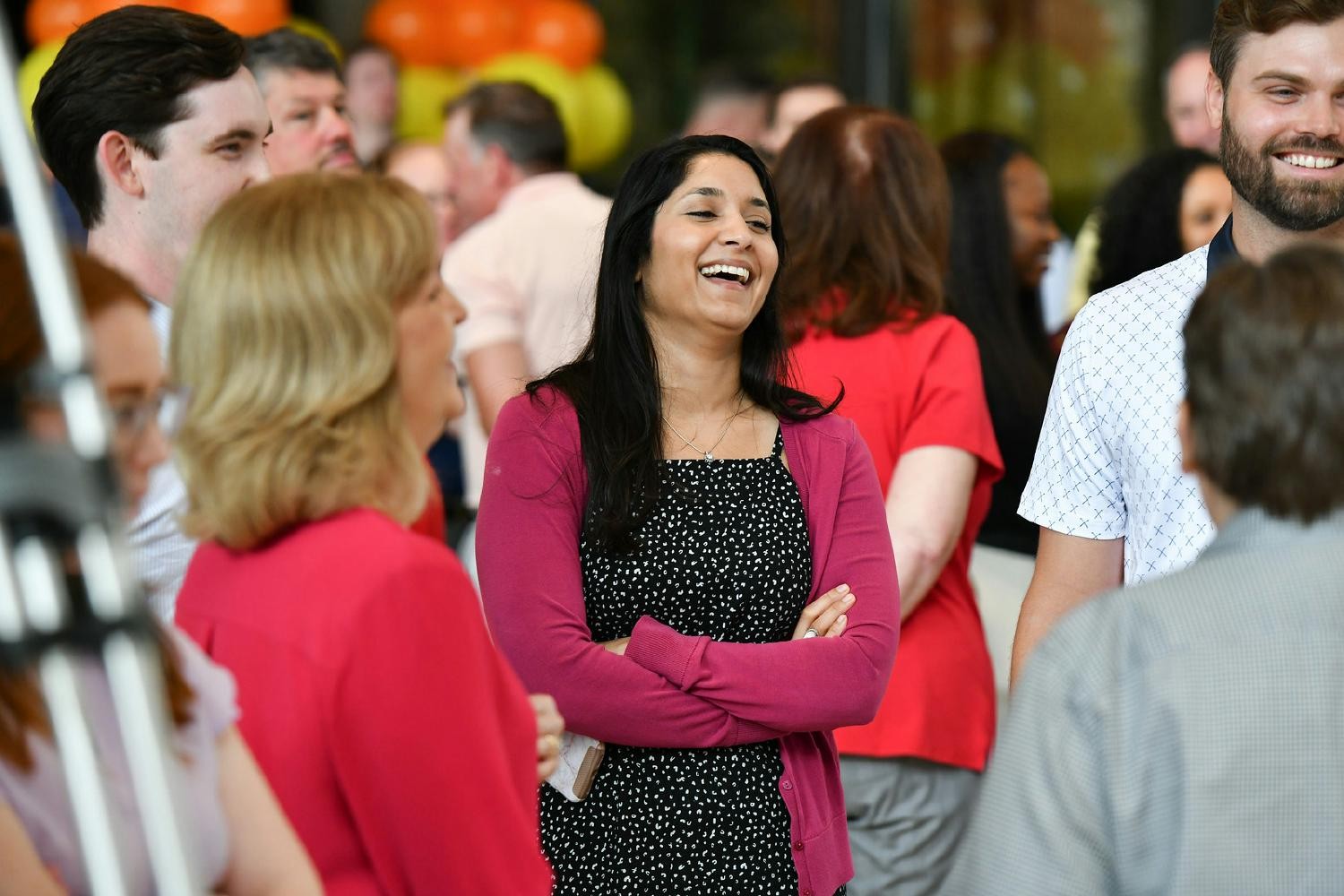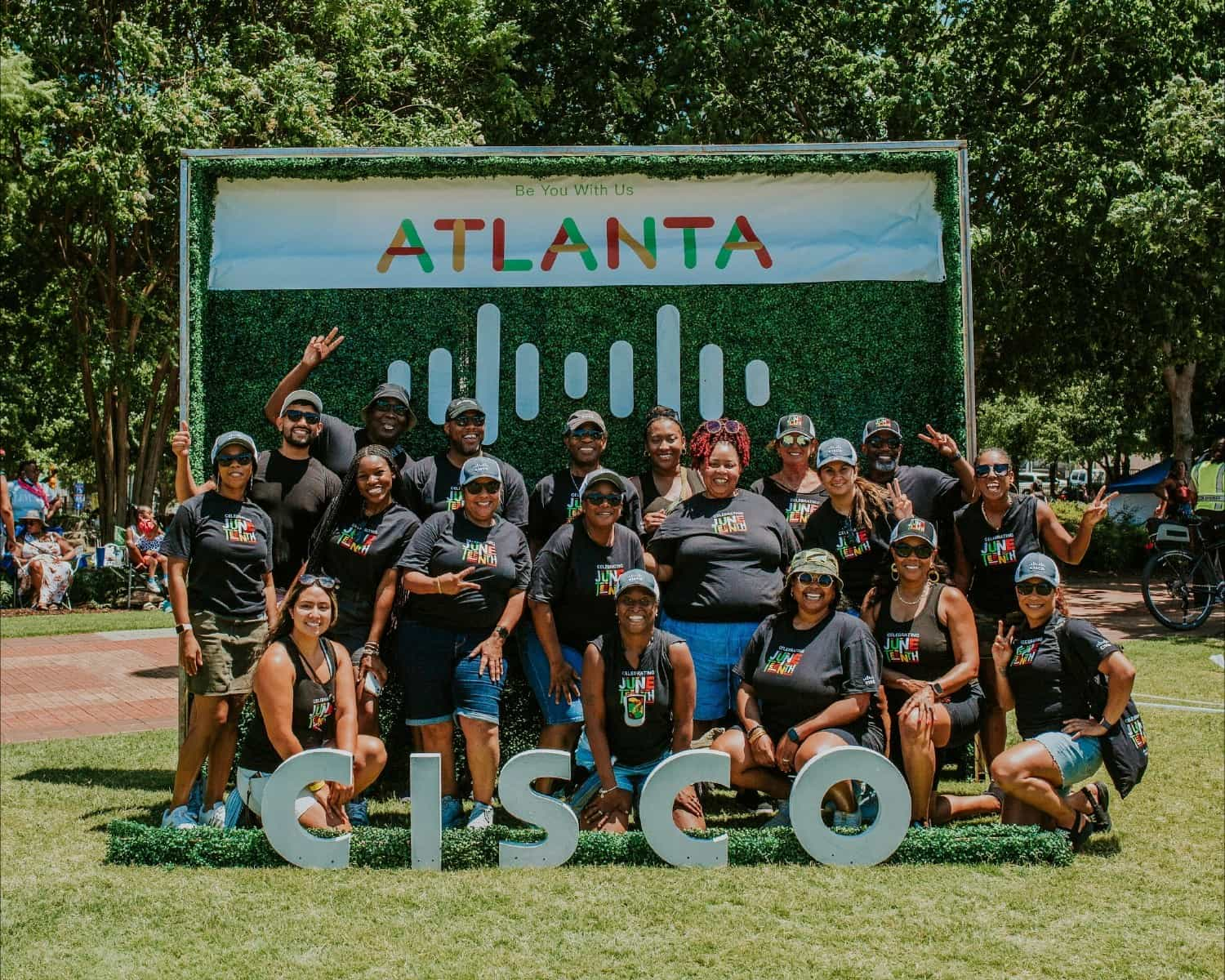Belonging, Changing company culture, Company Culture, DEIB, Diversity & Inclusion, Listening
“We know how important it is to look beyond the numbers. To really understand what representation, what inclusion, what belonging really means to our people. And that's where active listening is really important to understand the employee experience. Diversity without the inclusion part won't cut it.”
Yolanda Friend, inclusion and diversity lead for Accenture North America, shares powerful insights and actionable steps to create a more inclusive culture on this episode of the Better podcast.
From the importance of mentors and sponsors to the everyday micro-experiences that make a difference, Yolanda's practical tips will inspire you to champion belonging and unlock your employees’ full potential at work.
Learn why having a diverse workforce isn’t just the right thing to do, but also good for business. Plus, get a sneak peek into Yolanda's mentor's new book, “Unwavering,” filled with invaluable career and life lessons.
On why having an inclusive workplace at Accenture is good for business:
Our goal at Accenture is to be the most inclusive and diverse company in the world. We want people to love working here. We want them to feel like it's the best place to achieve their personal and professional aspirations. To make that a reality, we have to treat efforts around inclusion and diversity just like every other business priority.
We have to be able to attract, retain, and inspire people with different backgrounds, perspectives, and lived experiences. And we have to reflect the communities where we live and work.
To achieve this diversity, we set goals. We share them publicly. We collect the data and we measure our progress. We know that this transparency of information builds trust with people.
And we also know how important it is to look beyond the numbers. To really understand what representation, inclusion, and belonging really mean to our people. And that's why active listening is really important to understand the employee experience. Diversity without inclusion won't cut it.
On tangible steps all companies can take to create more inclusive cultures:
There are important formal and informal ways of doing this.
Formal programs — for example, belonging to an ERG, participating in a mentoring or sponsorship program — those are structured and really great because they're there to equip, educate, and elicit inclusive behaviors in a company.
Equally as important are more informal things that you can do, such as:
- Stepping in when someone's cut off in a meeting.
- Making sure people are getting credit for their ideas.
- Checking on people. Really taking that time, just take 10 minutes and send them a ping, get on the phone, check in and see how people are doing. It really does make a difference when we show up for people like that.
On the difference between mentors and sponsor, and the benefits of each:
Mentors are there to listen to you. Sponsors are there to talk about you in rooms, places, spaces where you aren't — or at least you aren't yet.
When you think about sponsorship, you definitely want to think about a person who is in a position of power, who has influence in the organization, and who is willing to invest the time and ultimately spend their political capital advocating for you and being your voice and champion when you aren't there to be your own voice and champion.
The evaluation of each is a little bit different, and it's important to have both in your life.
I've had the opportunity to have many mentors throughout my career, both internal to Accenture and outside of Accenture. I think that's also important because you can fall into a vortex of your own company and your own situation. Taking off the blinders, and looking and listening to other perspectives is always refreshing and helpful.
I've had the blessing of having fantastic coaches, mentors, and sponsors in my career. Interestingly, I had all of that wrapped up in one person. Her name is Nellie Borrero and she has a book coming out in March of 2024 that's called “Unwavering.”
She's done an amazing job of culminating all of the coaching, life, and career lessons that she’s shared and imparted with me over the past few years into this book.
Get more insights
Get more strategies from our workplace culture experts at our For All™ Summit, April 8-10, 2025 in Las Vegas, NV.
Subscribe to Better wherever podcasts are available so you don't miss an episode.
Roula Amire:
Welcome to Better, by Great Place To Work, the global authority on workplace culture. I'm your host, Roula Amire, content director at Great Place To Work. Today's episode with Yolanda Friend, inclusion and diversity lead for Accenture North America, made me reflect on how we show up at work, and I think it will for you too. She talked about formal and informal ways to make sure people of all backgrounds feel welcome. We talked about mentors and sponsors, and how they help with belonging. If you've had a great mentor or sponsor in your current or your past job, you might want to share this episode with them, and let them know how much they meant to you. And we could all take a lesson from Yolanda on how she talks to her kids about how to show up and feel confident. Their favorite affirmation? Every room gets better when I walk in. Enjoy the episode. Well Yolanda, welcome to the podcast. I do have a good friend named Yolanda. She is Italian, either fully Italian or half Italian, and her nickname is Yo. So I don't know, do you share that nickname, or no? Yo, Yo-Yo?Yolanda Friend:
I do share that nickname. Quite a few people call me Yo for a couple of reasons. One, of course, my first name Yolanda starts with Yo. But my maiden name is Mayo, so it ended in a yo.Roula Amire:
So a double yo.Yolanda Friend:
I had a double yo.Roula Amire:
Oh, I love calling her Yo-Yo or Yo. I love the name. So yeah, I respond to any variation of my name. I've had so many nicknames over the years, so that's always fun.Yolanda Friend:
Totally.Roula Amire:
Let's start off today by going back in time a little bit, to college years, when I guess you were yo-yo, right? So it was before you were married. You went to Florida A&M.Yolanda Friend:
That is right.Roula Amire:
A historically black university. And I looked it up, and hopefully I'm not butchering this, but I think that makes you a rattler? That's a mascot?Yolanda Friend:
Exactly.Roula Amire:
A rattlesnake?Yolanda Friend:
Make the rattlesnakes sound.Roula Amire:
I love it. Well, I'd love to hear how you felt when you were there, how that experience affected you, and if that led to you dedicating your career to making sure people feel seen and heard in the workplace. Because I believe your experience in college made you feel a certain way, but I'll let you share that.Yolanda Friend:
No, absolutely. I love this question. I did attend Florida A&M University, which is an HBCU. It's in Tallahassee, Florida, and I earned my MBA there. And I have to say that it was so empowering to really see my heritage constantly celebrated, and those moments improved my personal sense of self-worth. And it really taught me to have confidence in a world that didn't always automatically value what I brought to the table. And I felt like it prepared me for a world where things aren't always fair, aren't always equitable. And not in a way where I felt victimized, but in a way where I felt empowered. And that's because I knew that as long as I was prepared and I put my best effort forward, nothing or no one could ever take that from me. And so when I look at how that impacted my career journey, I combine that sense of self with one of my favorite classes, which is organizational behavior. Just learning a lot in terms of those principles led me to pursuing a career at Accenture in change management, originally. So I was part of our talent and organization practice for the first 10 years of my career here at Accenture. Accenture was actually my first job out of school, believe it or not.Roula Amire:
No way.Yolanda Friend:
Yeah, yeah. And so this focus on change management is so important when we talk about my role now, in terms of leading inclusion and diversity for our North America market. Everyone has a different starting point on their IND journey, and so I lean on these change management skills every single day. And no two days are the same, no two situations are the same, no two people are the same. So I feel like that was a big stepping stone and awakening point in my life, having classes in those subjects and then combined with my change management skills from the first decade of my career. And then when I think too, on a personal note, I'm also a mom and a stepmom of four kids. And so I feel like some of the things I learned in college bleed into how I raise my kids. Of course, my husband and I are totally outnumbered, but I won't talk about that part here. But I do like to talk with my kids a lot about affirmations, and differences, and how to feel confident. And their favorite affirmation is, every room gets better when I walk in. Because I want them to know, they belong in all places and all spaces. I want them to know that they should feel confident. And I feel like that's the root of what Florida A&M gave me, is just being able to show up.Roula Amire:
Well, that's a mic drop, but I'll try and follow that up. Yeah, I mean, we all know diversity, equity, inclusion and belonging is a complex topic, it's a charged topic for some. But just as you've said, I mean, no matter the label we use or don't use, we all want to matter. And we want to feel like we can be our authentic selves, and we want to be the same person that we are at work outside of work. And we want to work at companies where all that's true. And when that's true, everyone benefits. Obviously when that's true, people stay longer at their company, they feel that what they do matters. And our research shows that companies with the diverse workforce outperform their competition. They're more agile, they're more productive, they're more innovative. So I'd like you to speak to that skeptical, on-the-fence leader to help them understand the business case. So can you share how having a diverse workplace at Accenture is good for business, is good for your business, and get other leaders thinking why they should make that part of their business strategy?Yolanda Friend:
Yeah, absolutely. When I think about all that you've just laid out, our goal at Accenture is to be the most inclusive and diverse company in the world. We want people to love working here, we want them to feel like it's the best place to achieve their personal and professional aspirations. And so to make this a reality, we have to treat efforts around inclusion and diversity just like every other business priority. And we know that our talent is one of our most important areas of competitive differentiation. We have to be able to attract, and retain, and inspire people with different backgrounds, different perspectives, different lived experiences. And we have to reflect the communities where we live and work. I mean, we are a professional services company. We create solutions for our clients. We have to not only understand our clients, but who our clients serve. And that reflects a very wide view of diversity and identities. And so to achieve this diversity, we set goals. We share them publicly. We collect the data, we measure our progress. We know that this transparency of information builds trust with people. And publishing, frankly, allows us to hold ourselves accountable to make sure that we do continue to attract and retain the most innovative and talented people in our industry. And then we also know how important it is to look beyond the numbers. To really understand what representation, what inclusion, what belonging really means to our people. And that's where active listening is really important to understand the employee experience. Diversity without the inclusion part won't cut it. So I think it's twofold. It's holding yourself accountable to creating that diverse workforce, having a very positive employee experience, and then getting constant feedback on, is our intent aligned with our impact for our people?Roula Amire:
Someone might be listening and say yes to all of that. But, there's a but, Accenture is a multinational, global company and one of the best in the world. Which are all positives. But to address those listeners who believe, well, we don't have the resources that Accenture does, we're not as big as them, we don't have the budgets or the time, et cetera. I'd like to provide them with some tangible steps they can take to create a more inclusive culture, no matter the size of their company or their budget. So I'm going to toss out a few suggestions I've heard you share in the past, I'll ask you to share your thoughts and example around each one. We'll move quickly through each of these. So the first one is, give people credit for their ideas and acknowledge thoughts when they're shared. So can you expand on that, and what does that look like in practice?Yolanda Friend:
Yeah, I think, and I don't want to deviate away from what you asked me, but when I think about how you started the question, companies that think, do we have enough resources here to create these spaces of belonging to get things done? I mean, I do think that, to your point, there are informal ways like that, that are extremely important, also combined with the formal ways. I think most companies are able to invest in processes, or programs, or listening tools to help create a sense of belonging. And so I think that the formal programs, like for example belonging to an ERG, or participating in mentoring or sponsoring, or becoming an ally, those are structured and really great because they're there to equip, they're there to educate, to elicit the right behaviors in a company. And then there's formal processes designed to create opportunities for everyone to mitigate potential bias in our talent life cycles. When we think about hiring, for example, using diverse slates, having those single decision makers, having diverse interview teams. And then of course, like we talked about before, listening to our people, to align your intent with your impact. You want to walk your walk. You don't want to advertise things and say things about your company, your company's culture, and your people are left scratching their heads saying, "I wonder what company she's talking about." And so I do think those formal things really do help. But to your point, equally as important are kind of those more informal things that you do, and you notice as a leader. And I do have a couple of examples to loop back to what you originally asked me. So it's things like stepping in when someone's cut off in a meeting. That is a personal example for me. I tell this story quite a bit. A couple of years ago I was on a call with several leaders and I was interrupted, full stop. And once the call was over, very much to my surprise, the individual who interrupted me, he called to apologize. And he told me that another leader on that call had privately contacted him, notified him of his behavior, and suggested he reach out to me. And I was very grateful for the apology, but was even more impactful for me was that I felt seen and heard by the leader who noticed what was happening. And at the time, I didn't know that leader very well. I wanted to get to know her. It laid the groundwork for me to connect with her, to say thank you for her advocacy. And we have a great relationship to this day. So I do think that there are things that leaders can do to create that safe space of community and belonging, and making people feel seen and heard. So that's just one example. Making sure people are getting credit for their ideas, that's important. Because there's different personality types that we work with. The person who had the best idea isn't always going to be the loudest person in the room. And so it's circling back to connect a conversation back to something that someone who might be a little quieter had already said. Then someone jumped in, stepped up, said the same exact thing a little bit louder, a little bit more in a different way, changed a few words, but it's the same thing the person already said. So it's crediting back to the person who originally said that idea. And then I even think about now, especially in these times in our world that has so many societal, geopolitical issues brewing at the moment, but checking on people. Really taking that time, just take 10 minutes. Send them a ping, get on the phone, just check in and see how people are doing and managing. Because it really does make a difference when we show up for people like that.Roula Amire:
Those are some excellent examples. One thing you also mentioned was mentors or sponsorships, perhaps. Can you explain the difference between the two, and how sponsorship helps with belonging?Yolanda Friend:
Oh, absolutely. I think that, bottom line, when I think about the difference of mentors and sponsors, mentors are really there to listen to you, and sponsors are there to talk about you. In rooms, places, spaces where you aren't. Or at least you aren't yet. So I like to advise people, as you come across those individuals, your mentor, I think there's more latitude and flexibility around who a great mentor would be. Because it could be identity-based, it could be career track-based. There are just a lot of ways to connect with people, and it's really just having a safe space to share, get some great advice, and make new connections. When you think about sponsorship, you definitely want to think about a person who is in a position of power, who has influence in the organization, and who is willing to invest the time and ultimately spend their political capital-Roula Amire:
On you, right?Yolanda Friend:
Advocating for you and being your voice and your champion when you aren't there to be your own voice and your own champion. So I do think that the evaluation of each is a little bit different, and it's important to have both in your life.Roula Amire:
I completely agree. There's a third I just wanted to toss out to you. This was something Jackie Welch, she's the CHRO at the New York Times, told me in an interview. She was breaking down the three relationships that she said you need at work to propel your career. And absolutely mentor, sponsor, and also coach. So she said, "The mentor talks with you, the coach talks at you, and the sponsor talks about you when you're not in the room and you can't talk on your own behalf." And the advocate is the most important for exactly what you just said. And she's a woman, she's a person of color, and she said, "Women and minorities, we're over-mentored. We're over-coached. Everyone wants to tell us what we should be thinking about, and they want to tell us what they want us to do." And it's important to get those inputs. But what really puts the icing on the cake, and is kind of the propellant nature of a relationship, is the sponsor. That's the most important, when you who a sponsor should be. It's different than a mentor of course, different than a coach. Have you, I guess, does what she say resonate, and have you had a sponsor in your career? Or are you a sponsor to someone else?Yolanda Friend:
No, absolutely. Everything that you just described resonates the mentor, the sponsor, the coach. I do think that I've had the opportunity to have many mentors throughout my career, both internal to Accenture and then outside of Accenture. I think that's also important, to get that external perspective from people who are having different experiences at other companies. Because you can fall into a vortex of your own company and your own situation. And so taking off the blinders, and looking and listening to other perspectives, is always refreshing and helpful. And for sure, I've had the blessing of having fantastic coaches and sponsors. I think that, interestingly, I had all of that wrapped up in one person who served in many capacities in my life and is one of the best mentor, coaches, sponsors, fairy, godmothers friends that I could ever have hoped for in a work environment. And so I'm just always grateful that I was able to find that type of connection, a safe space for me to talk through things that were unfolding real-time, without any judgment. I think that's a really important part, to build that psychological safety, and to know that they had my back even hearing the good, the bad and the ugly. But I know that's very uncommon and I had a unique situation, but I'm very grateful for that experience.Roula Amire:
Do you still work together?Yolanda Friend:
Yes, we still work together. As a matter of fact, I would love to talk about her for a quick second. Her name is Nellie Borrero. She's actually come out with a book in March of 2024 that's going to be called Unwavering. And I had the opportunity to have a pre-read. And all of the coaching and the life lessons and the career lessons that she shared and imparted with me over the past few years, she's done an amazing job of culminating all of that information into this book. And it's just, it's gold.Roula Amire:
That's really exciting. So we can all check it out, and get some of the lessons that you've gotten from her over the years as a triple threat, as a mentor, coach, and sponsor.Yolanda Friend:
Yes.Roula Amire:
Hey, Better listeners, want to put your headphones down and meet culture leaders in person? Network and learn from the most innovative companies across every industry? Hear from bestselling authors like Angela Duckworth and the Emmy-nominated actress, Mindy Kaling? Then mark your calendars May 7th through ninth, and join us in New Orleans at the Great Place To Work For All summit, the can't-miss company culture and leadership event of the year. Use the code Better2024 to save $200 off registration before April 7th. Find the code and link in our episode bio. See you there. Is there a particular piece of advice you'd go back and give your younger self?Yolanda Friend:
Oh, that's a great question. I think a couple of things. I think first and foremost, I would tell my younger self to look at everything as a learning opportunity that's preparing me for my next steps. So that would include everything. Even when I thought, why is this happening? This doesn't make any sense, this is terrible. Because you may not have clarity in the moment as to why something's happening, but all of it works together to shape and mold you into the best version of yourself. And that's all that I could ever hope for, for myself, for my family, for my colleagues, be the best version of you. And every single experience that happens along the way creates that. And so I would definitely tell my younger self that piece of advice. I think I would also say that attitude is everything. One of my favorite quotes is, "Whether you think you can or you think you can't, you're right." And so that growth mindset, knowing that the way you react to things and the way you respond to things is fully within your control. That is really all you can control; your thoughts, your behaviors, and your reactions and your actions. And so just keep remembering that every single time I thought that I had a setback, it was really just kind of a setup for the next opportunity. So staying prepared, having an attitude that's realistic and rooted in a growth mindset. I think those are really important. And then I'll attribute this last one to all of the great coaching, and mentoring, and sponsorship I've had over the past few years especially. Don't be afraid to make yourself known. I think that my younger self would sometimes be okay behind the scenes, be okay letting someone else talk about my idea. But I had to really own the fact that I'm here for a reason, I have things to offer, I have the right skills. And I'm a leader. And so it takes time to own that, claim that, own your space. And I'm just really fortunate that I've been able to uncover some of those blind spots personally, and move forward.Roula Amire:
Well, Yolanda, thank you for joining us today. I enjoyed the conversation, and I really appreciate the time.Yolanda Friend:
Absolutely. Thank you, this was a fantastic conversation. I appreciate you hosting me, and I look forward to doing it again one day.Roula Amire:
Sounds good, I'll take you up on it. Thanks for listening. If you enjoyed today's podcast, please leave a five-star rating, write a review, and subscribe so you don't miss an episode. You can stream this in previous episodes wherever podcasts are available.

